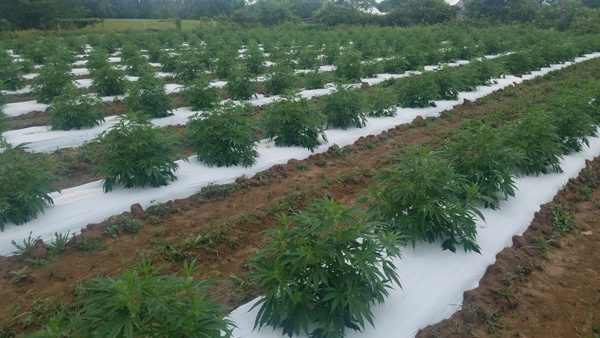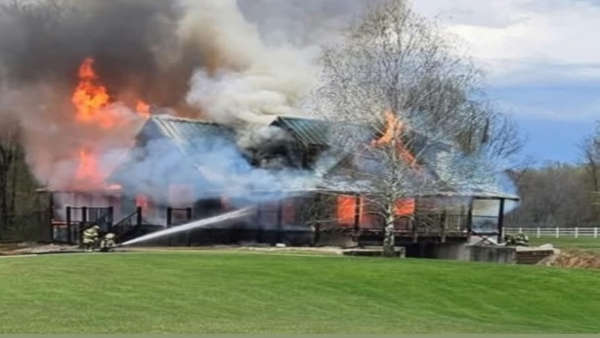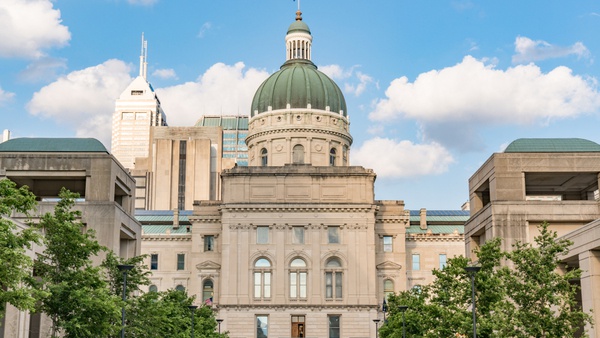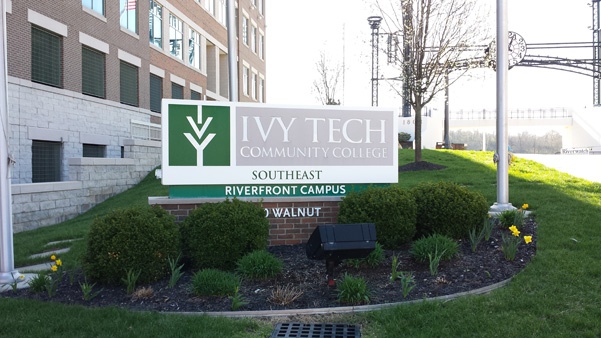“Our mission is to grow the highest quality hemp using sustainable, ethical, and organic farming practices.”

Photo provided by Purdue University Extension Dearborn County.
(Aurora, Ind.) – Industrial hemp will be produced in Dearborn County in 2020. In accordance with rules created by the United States Department of Agriculture (USDA) after passage of the 2018 Farm Bill and under regulation by Office of the Indiana State Chemist (OISC), three Dearborn County businesses have been approved to produce or handle hemp in 2020.
George Morgan, one of four partners at Flagship growing Dearborn County hemp in 2020, has spent the last several years researching production in neighboring states and wants the community to know that they take pride in their approach to farming.
“Our mission is to grow the highest quality hemp using sustainable, ethical, and organic farming practices,” Morgan said. “Cultivating high grade industrial hemp is our passion.”
Flagship Farms, like other hemp producers across Indiana over the last two years, have spent countless hours learning and preparing to grow this new agricultural commodity.
“So many farmers throughout the country have been more than willing to help us out and teach us,” Morgan said. “We want flagship farms to be a leader for Indiana hemp cultivation. We are striving to be the ‘Gold Standard’ for quality, in high CBD industrial hemp.”
Morgan and his partners at Flagship Farms, like many others, are hoping to take advantage of a growing demand for CBD products. Morgan anticipates that CBD sales could exceed $20 billion by 2024. In addition to CBD oils, Industrial hemp production in Indiana includes fiber and in some instances livestock forages.
The process of familiarizing Indiana farmers with a crop that has not been grown commercially for decades has been years in the making. Ongoing educational efforts include workshops, webinars, and technical resource guides. Purdue University Extension and the OISC have worked together with hundreds of farmers and organizations to ensure that producers like Flagship Farms have the resources they need.
“Purdue has definitely been helpful,” Morgan said. “The hemp field days they organized were huge for us early on. Not only did it provide useful info, it expanded our network tremendously. Midwest Hemp association and the Indiana Farmers Union have also helped.”
All who seek to grow, process, or handle hemp in Indiana must work with Purdue University Extension, another research institution, or agricultural entity this year. Similar research protocols were in place in 2019.
Another Dearborn County hemp producer, Terry Lowitz, echoed sentiments similar to Morgan concerning his preparation and work on this new venture.
“As a new hemp farmer, I am looking forward to the challenge of a high-quality hemp plan with maximum CBD content,” Lowitz said. “I am growing three different types of plants.”
While farmers like Morgan and Lowitz will be producing industrial hemp in our community, it is important to distinguish this product from Marijuana, which is still illegal to grow in Indiana. Production is closely observed by OISC to ensure that rules and research protocols, such as minimum acreage and proper handling, are adhered to.
“We want to educate people on hemp, how truly amazing this plant is, and how it can help the planet,” Morgan said. “Hemp has been one of the most significant crops for mankind up until the last century.”
For more information concerning industrial hemp production in Indiana, please visit https://www.oisc.purdue.edu/hemp/index.html or https://purduehemp.org/.
To obtain local hemp resources or learn more about other agricultural programs, please contact Dearborn County Agricultural and Natural Resource Educator, John L. Hawley at hawley4@purdue.edu or 812-926-1189.
In addition to George Morgan, the Flagship Farm team consists of three other co-owners: Ben Zeigler, Josh Gentry, and Eric Schuler. To learn more about Flagship Farms, please contact gmorganivy@gmail.com.

 Delaware Area Home Damaged in Fire
Delaware Area Home Damaged in Fire
 Gov. Braun to Sign Senate Bill 1 Into Law
Gov. Braun to Sign Senate Bill 1 Into Law
 RCCF Accepting Osgood Grant Applications
RCCF Accepting Osgood Grant Applications
 Hoosiers Donate $483,000 Statewide on Ivy Tech Day
Hoosiers Donate $483,000 Statewide on Ivy Tech Day
 Indiana Treasurer Salutes 911 Dispatchers in Honor of National Public Safety Telecommunicators Week
Indiana Treasurer Salutes 911 Dispatchers in Honor of National Public Safety Telecommunicators Week
 Investigation Underway After Handmade Bomb Detonates in Cleves
Investigation Underway After Handmade Bomb Detonates in Cleves









